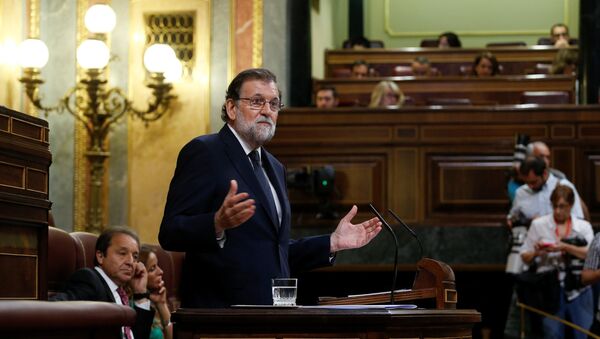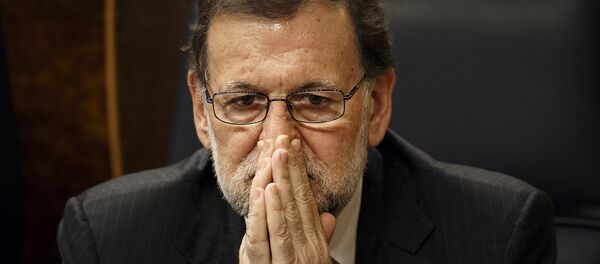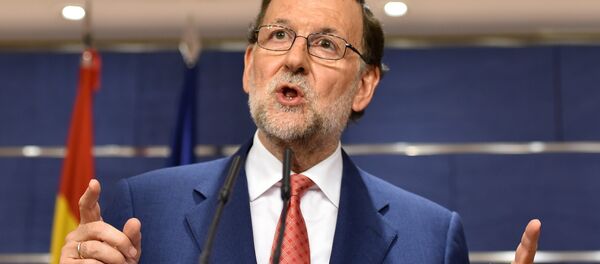In May, Spanish left-wing Podemos party filed the vote of non-confidence proposal with the lower house and proposed its leader Pablo Iglesias Turrion as a candidate for this post.
"Their time is over, they are part of the past. Spain is fed up with your theft," Podemos' parliamentary speaker, Irene Montero, told lawmakers.
Montero also criticized the policy of Rajoy's government regarding the issue of independence of the country's autonomous region of Catalonia, whose President Carles Puidemont Casamajo had announced on Friday that Catalonia would hold a unilateral referendum on independence on October 1, 2017. The government refused to discuss the matter and said it would block the vote.
The left-wing speaker accused the central government of "refusing to let people to express their opinion in a democratic manner."
"This is not an attempt to remove the government, but simply a game. From the first day, when you launched the initiative, it was clear that it would fail," Rajoy said in the parliament.
Podemos is the third largest party in the 350-seat parliament with 67 lawmakers. A vote of no confidence proceeds if it is supported by an absolute majority of lawmakers, or 176 votes.
Rajoy's governance has been overshadowed by a number of corruption scandals including the Gurtel case launched in October 2016, after nine years of investigations. Under the case, 37 PP members were accused of involvement in a corruption network by giving public contracts worth over 350 million euros ($382 million) after having received bribes. Some of the involved PP members, including the party's treasurer, testified that the PP leadership was aware of the scheme.
Opposition has demanded Rajoy step down and rallied in protest, while Rajoy rejected any accusations of being aware of the situation.



